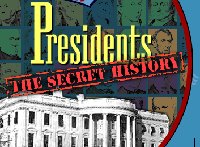Google has finally added some European cities to its maps (satellite imagery of Europe has been available for some time, but not maps) For the adventuresome, it is possible to download the Google Maps API (ie. application programming interface) and embed Google Maps in your web pages using JavaScript. This will enable you to draw markers and add overlays, links and notes to the map, and to build more sophisticated map applications. Read more about this here.
Wednesday, April 26, 2006
Monday, April 24, 2006
Edsitement
Edsitement is a useful resource for educators, from the National Endowment for the Humanities in partnership with the National Trust for the Humanities, and the Verizon Foundation. "This educational partnership brings online humanities resources from some of the world's great museums, libraries, cultural institutions, and universities directly to your classroom."
Sunday, April 23, 2006
Site for tracking the latest opinion polls
For those of you who monitor public opinion polls, a firm called Angus Reid publish on their web site the results of recent polls, both American and foreign, called Global Scan.
Angus Reid describe themselves as: "a partnership dedicated to understanding public opinion in North America and around the world. This commitment begins with our highly popular Global Scan service which provides a daily summary of published polling results from all over the globe. In 2005, there were over 1.2 million unique visits to Global Scan as journalists, scholars, students and members of the public sought to acquaint themselves on issues ranging from democratic processes to emerging attitudes in the Middle East."
The main poll site is:
http://www.angus-reid.com/polls/index.cfm
Thursday, April 20, 2006
Public Agenda Issue Briefs
Public Agenda Issue Guides are a useful reference resource for current topics. In Public Agenda's own words, "Issue Guides are used by journalists, policy makers, teachers, students and citizens who want to better understand controversial topics. Public Agenda Issue Guides provide facts and figures, different perspectives and analysis of public attitudes from surveys conducted by Public Agenda and by other respected polling and news organizations."
Think Tank Town blog at the Washington Post - update
On February 13 I posted details of the Think Tank Town blog hosted at the Washington Post. Earlier this month Ron Nessen, its author, left the blog, which has now reappeared in a different format. According to the Post, "Washingtonpost.com edits and publishes columns submitted by 10 prominent think tanks on a rotating basis every other weekday. Each think tank is free to choose its authors and the topics it believes are most important and timely." The think tanks featured include the obvious names, such as Brookings, the Rand, and the Council on Foreign Relations.
To access the column, use the drop-down menu headed "Today's Editorials, Opinions, Columns" and scroll down to "Think Tank Town." The changes make it a slightly more limited resource than before, but it is still useful.
About "Public Diplomacy"
The report "Public Diplomacy before Gullion: the Evolution of a Phrase" traces the history of the phrase and concept public diplomacy before Fletcher School of Diplomacy dean Edward Gullion officially "coined" it in 1965. The author, Nicholas Cull, is a professor at USC's Center on Public Diplomacy, and the author of the forthcoming "Selling America: US Information Overseas, a history of the U.S. Information Agency." (The report might be useful for PD speechwriters!
Wednesday, April 19, 2006
Google Services
Here's a very thorough overview of Google services and tools:
http://en.wikipedia.org/wiki/List_of_Google_services_and_tools
Thanks to Oli for this one!
Language Map

MLA has revamped its language map, which is a pretty neat resource! This is what the MLA site says about it:
"The MLA Language Map is intended for use by students, teachers, and anyone interested in learning about the linguistic and cultural composition of the United States. The MLA Language Map uses data from the 2000 United States census to display the locations and numbers of speakers of thirty languages and three groups of less commonly spoken languages in the United States. The census data are based on responses to the question, "Does this person speak a language other than English at home?" The Language Map illustrates the concentration of language speakers in zip codes and counties. The Data Center provides census data about over three hundred languages spoken in the United States, including actual numbers and percentages of speakers.
Tuesday, April 18, 2006
History Matters
Designed for high school and college teachers and students,
History Matters serves as a gateway to web resources and offers
other useful materials for teaching U.S. history. Here is a fuller annotation from a recent issue of the Scout Report:
"Arriving on the site, visitors will find three primary sections: “Many Pasts”, “Making Sense of Evidence”, and “www.history”. In “Many Pasts”, visitors can explore over 1000 primary documents, including photographic images and audio interviews. “Making Sense of Evidence” provides material on how historians approach resources as they attempt to craft intelligent and erudite narratives. The final section, “www.history”, contains brief reviews of over 800 websites that address various aspects of American history. The site also contains a number of other gems, including “Secrets of Great History Teachers”, which features interviews with those who impart the knowledge of the ages with wisdom and insight."
Wednesday, April 05, 2006
People Finders
ZabaSearchappears to have stopped providing people's ages in their free searches. Even more impressive - or ominous - is Melissa search, which - in addition to age and address history - provides a list of possible relatives! See the whole array of lookup services from Melissa.
Nice site for kids/teachers

This is a neat "U.S. History for Kids" site from PBS. Check out the main page also, lots of ideas for educators and very professionally presented.

